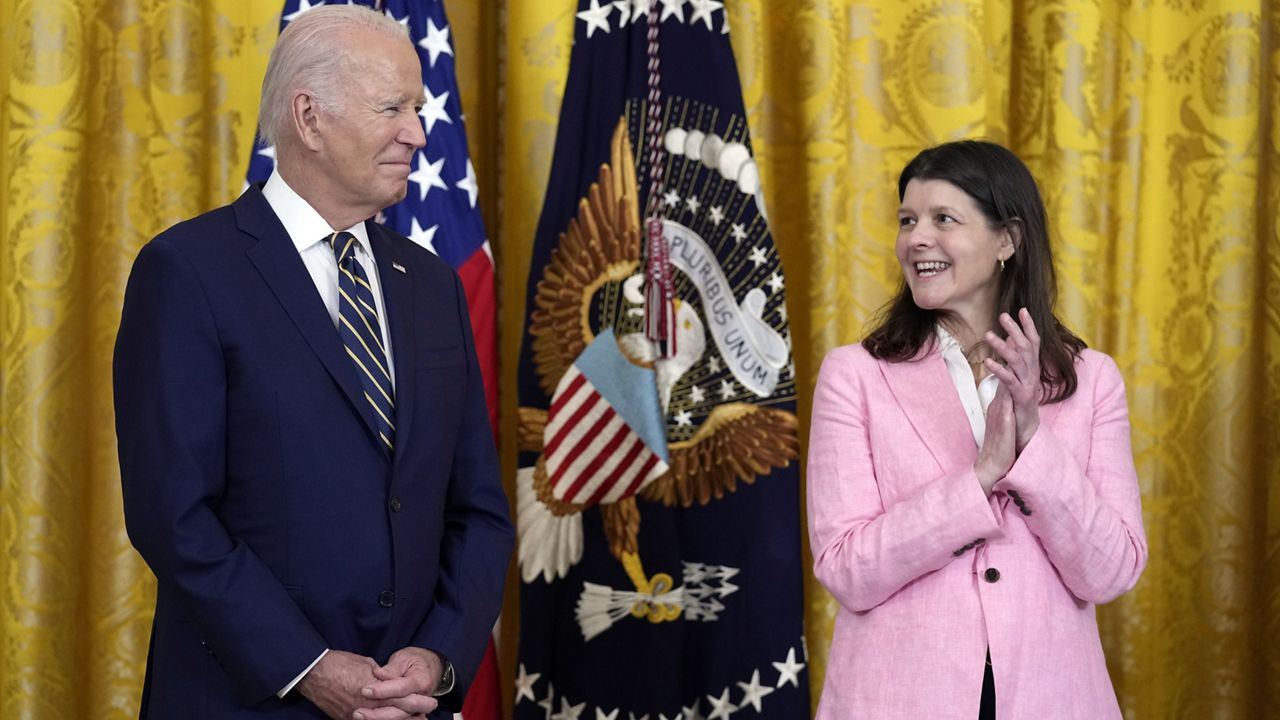President Joe Biden on Tuesday announced new federal regulations aimed at boosting mental health treatments that are covered by insurance, declaring that “mental health care is health care.”
“It is essential to people’s well-being and their ability to lead a full, productive life,” Biden said when making the announcement at the White House.
What You Need To Know
- On Tuesday, President Joe Biden proposed a new federal regulation to strengthen requirements that private insurers provide mental health care coverage equivalent to the medical benefits they offer and reduce restrictions on out-of-network coverage
- The rule will mandate health insurers examine the disparity between mental and physical health coverage, including the number of providers in-network, how much the insurers pay out-of-network providers, how often they require prior authorizations and the rate those authorizations are denied
- One goal is to push health plans to raise payment rates for therapists, psychiatrists and other mental health providers to bring them in-network
- Examining data from 2017, the major health care consulting firm Milliman published a report that concluded patients were nearly six times as likely to use out-of-network mental health care providers than when seeking physical health care
- It will take a couple months for the rule to go through a public comment period, officials said, but they could not provide a timeframe for when private insurers will begin complying with the rule and when consumers will start feeling the effects.
The new rules are intended to clarify requirements set out by the Mental Health Parity and Addiction Equity Act, which was first passed in 2008 and updated in 2020. The law requires mental health care benefits and substance use disorder coverage be equal to those provided for physical health benefits.
Despite the requirement, the Biden administration claims private insurers have obfuscated their efforts or created loopholes to avoid providing adequate mental health coverage.
“For the many families out there who are paying out of pocket to pay for the care their loved ones need even when they have health insurance, help is on the way,” said Neera Tanden, a top Biden domestic policy adviser, on a press call on Monday previewing the announcement. “This rule will make sure that we have true parity, and it will help ensure we finally fulfill the promise of mental health parity required under the law.”
The administration said it’s aiming to address issues such as insurers enabling nutritional counseling for diabetes patients but making it more difficult for those with eating disorders or not having enough mental health providers in their provider networks, forcing subscribers to pay higher, out-of-pocket fees for needed help.
“I don’t know what the difference between breaking your arm and having a mental breakdown is, it’s health. There is no distinction, it’s health,” Biden said Tuesday.
The rule will mandate health insurers examine the disparity between mental and physical health coverage. That includes studying the number of providers in-network, how much the insurers pay out-of-network providers, how often they require prior authorizations and the rate those authorizations are denied.
“Right now many health plans don't collect data. Under my administration, with this new plan, they would be required to collect that data,” Biden declared.
One goal is to push health plans to raise payment rates for therapists, psychiatrists and other mental health providers to bring them in-network. Examining data from 2017, the major health care consulting firm Milliman published a report that concluded patients were nearly six times as likely to use out-of-network mental health care providers than when seeking physical health care.
“It may mean that they're raising those payment rates and making it easier for people to get into their network,” another senior administration official said on Monday. “We would expect the effect of that would be that folks who might previously have said they don't take insurance will now be in a position to join those networks and get paid fairly and enable patients to get the care that they need.”
The White House cited an NPR report of a Michigan family spending hundreds of thousands a year and going into debt for out-of-network care for their son who suffers from severe mental health disorders.
The rule will also produce specific examples of tactics health plans can no longer use to restrict access to mental health and substance use disorder benefits and require the factors used to determine out-of-network payment rates must be similar across both mental and physical health coverage.
State and local government health plans were not initially required to comply with the mental health parity law passed in 2008. Another aspect of the Biden administration’s rule will close that loophole for 200 non-federal governmental health plans across the country that provide insurance to 90,000 people.
“Now we're making it clear, they have to follow the law as well,” Biden declared on Tuesday.
The proposal will have to go through the rulemaking process from the three departments that regulate health care: labor, treasury, and health and human services. It will take a couple months for the rule to go through a public comment period, officials said, but they could not provide a timeframe for when private insurers will begin complying with the rule and when consumers will start feeling the effects.
The federal government will be able to take companies to court if they do not comply with the rules.
“There's still so much more to do. Improving our mental health system means addressing the three C's: coverage, care and causes. Today, we took a big step in coverage. Now we need to keep expanding care,” Biden said, mentioning increasing telemedicine and expanding the mental health workforce.
The announcement came at an event in the East Room in which the president was joined by Sen. Debbie Stabenow, D-Mich., and a mother who shared her story of having to pay out-of-pocket for a specialized therapist for her daughter struggling with mental illness.



